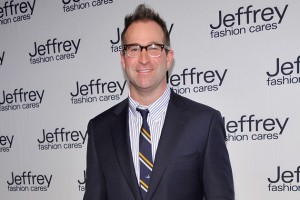
Todd Sears, an LGBT activist who has successfully lobbied the financial sectors in New York (Wall Street) and London (the City)in advancing the equal rights struggles of our community, is now turning his attention to the ‘emerging’ markets of Asia. “There are significant issues moving talent from the U.K., from the U.S., to places like Singapore, where being gay is actually technically still illegal,” he said on Bloomberg Television Wednesday. “There are a lot of concerns about that.”
Singapore, which houses such giants as Google, Barclays and J.P. Morgan, is perhaps best known for its discrimination in two recently publicized same-sex marriage cases. In April, a Singapore court rejected a local couple’s challenge to 377A. “Parliament has decided that Section 377A should be retained,” said Justice Quentin Loh, as reported by Channel NewsAsia, part of MediaCorp, the Singapore media company owned by state-owned investment company Temasek. “Our courts cannot substitute their own views for that of Parliament.” An appeal is underway of that ruling as well as another challenge to the constitutionality of the statute.
Hong Kong, another global financial center, also made news last year when a Hong Kong tycoon offered a $65 million reward to any man who would marry his daughter, who was in a relationship with a woman. Months later, the businessman said the offer still stood. “She can choose whatever she wants,” Cecil Chao told the Financial Times regarding his daughter, Gigi. “But anyone who comes along to pursue Gigi, we will give them a moderately deluxe life,” he said. Hong Kong decriminalized homosexuality in 1991 but does not recognize civil unions let alone same-sex marriage.
China is still struggling to find a policy that is acceptable to both its citizens and its government. While they have been surprisingly engaged on the HIV/AIDS front and in big cities like Beijing and Shanghai growing LGBT communities are springing up, the government does not officially recognize the community.
“This is the first time it’s ever been a business issue,” Sears told Bloomberg TV. “It’s only ever been a civil rights issue, an HR issue, a social issue.”











